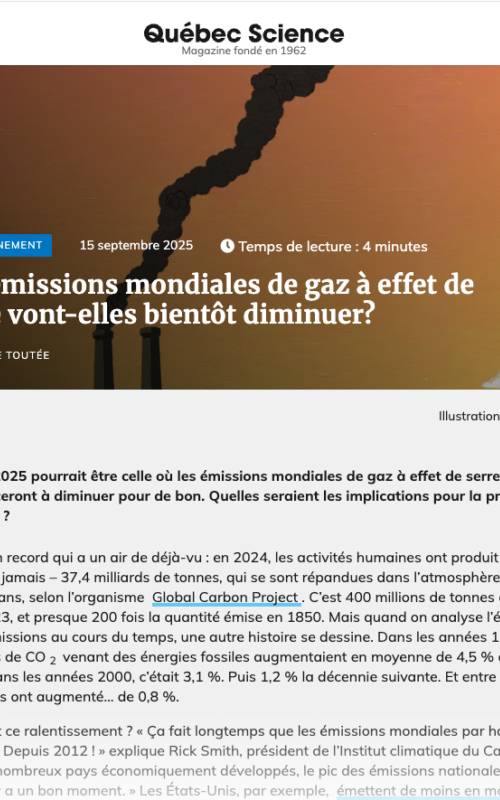Media coverage
Share

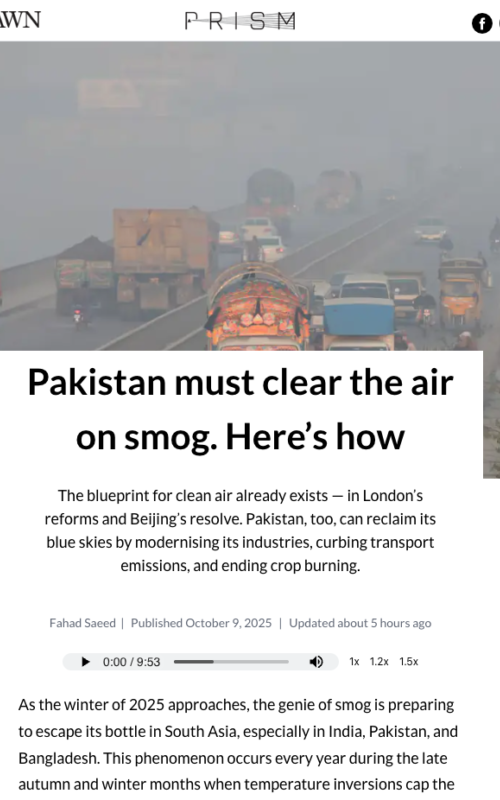
Dawn
The blueprint for clean air already exists — in London’s reforms and Beijing’s resolve. Pakistan, too, can reclaim its blue skies by modernising its industries, curbing transport emissions, and ending crop burning, writes Fahad Saeed.

Samoa News Hub
Samoa is taking steps to build resilience in a new era where Pacific communities at the forefront of climate change impacts can define, address and seek support for climate-induced loss and damage, through the BOLD Project.
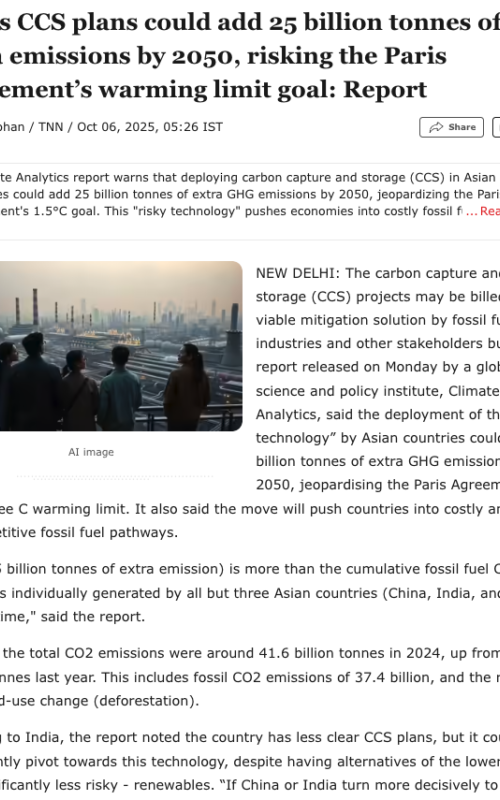
The Times of India
"Asia is at a crossroads: while these countries haven't yet gone down a high CCS route, many have tailored their CCS policies to protect their fossil fuel industry, especially in Japan, South Korea and Australia," said Bill Hare.
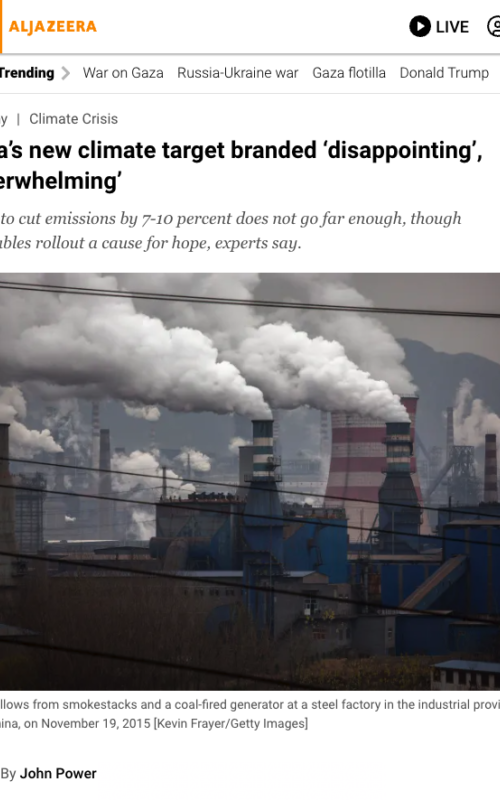
Al Jazeera
China’s new 2035 climate target is "unfortunately very disappointing: This target will not drive down emissions – it is below what China is likely to achieve already under its current climate policies,” our CEO Bill Hare told Al Jazeera.
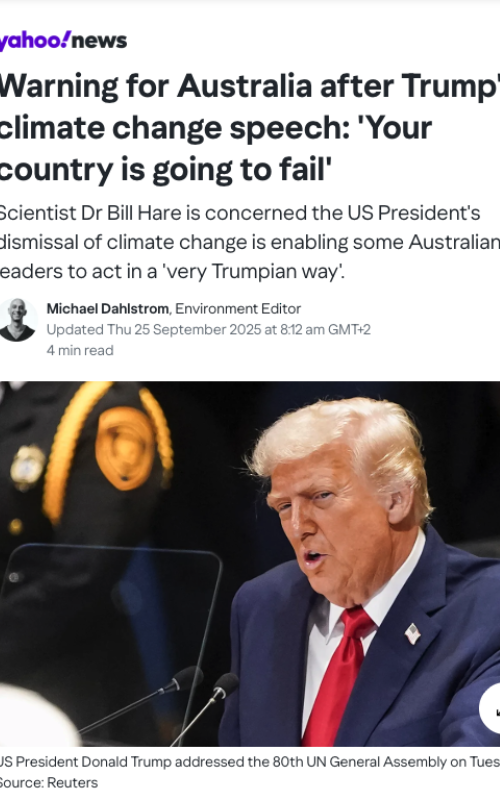
Yahoo News
Dr Bill Hare tells Yahoo News that the US President's dismissal of climate change is enabling some Australian leaders to act in a 'very Trumpian way'.
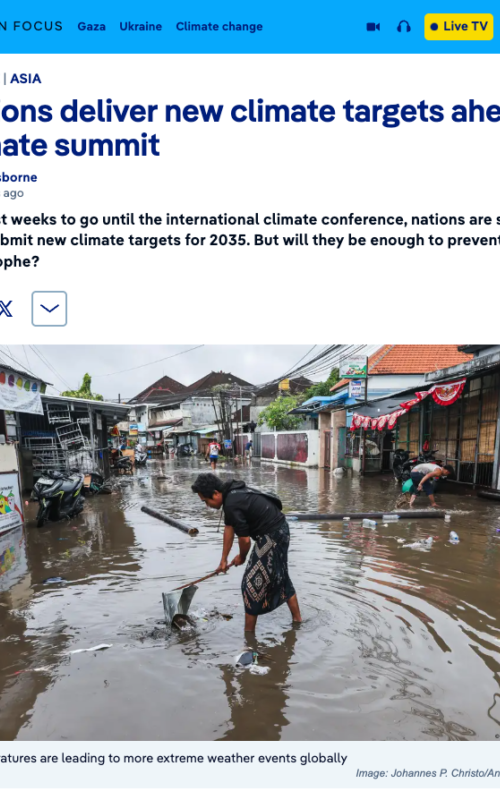
DW News
With just weeks to go until the international climate conference, nations are stepping up to submit new climate targets for 2035. Experts weigh in what to expect for major emitters.
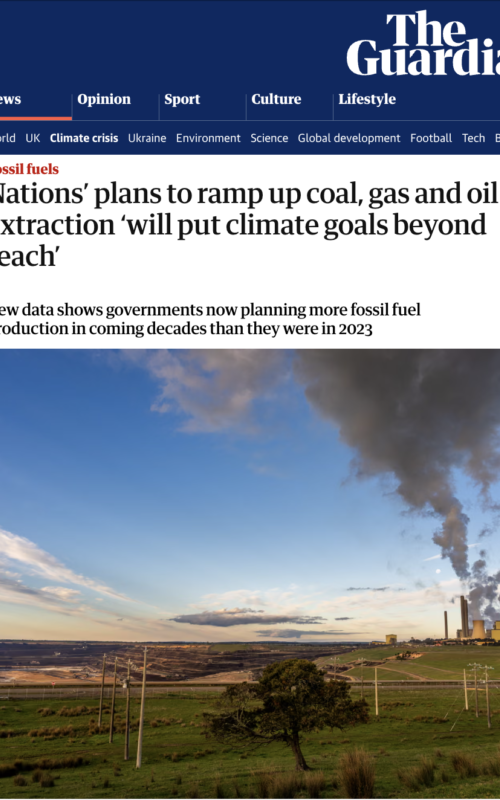
The Guardian
“We are in the foothills of an energy transition that is going to reshape fossil fuel demand,” said Dr Neil Grant. “But many governments are thinking in terms of a world where the energy transition happens very incrementally. There’s a lot of danger, [including that] the voice of the fossil fuel lobby only gets louder and holds us back from this change to a cleaner, better, greener economy. That would lead to climate chaos or significant negative economic impacts.”
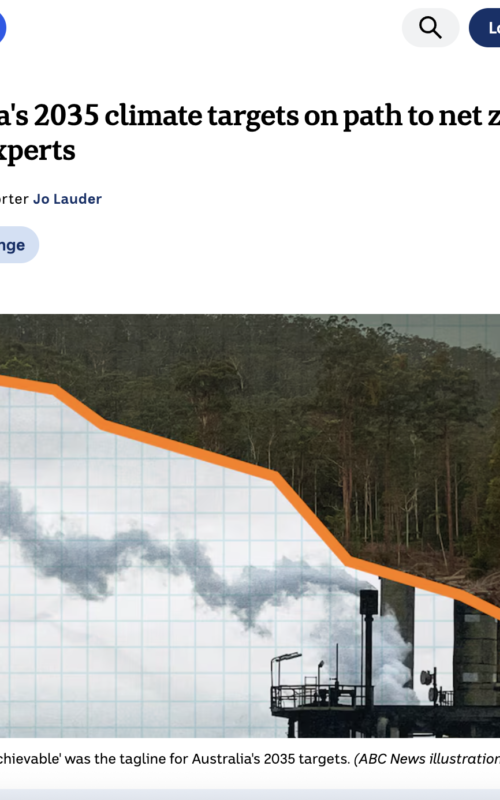
ABC News
Thomas Houlie told the ABC: "Publishing a weak target in the 60s [sends] a wrong signal to Pacific countries and also to voters that actually voted for stronger climate action earlier this year".
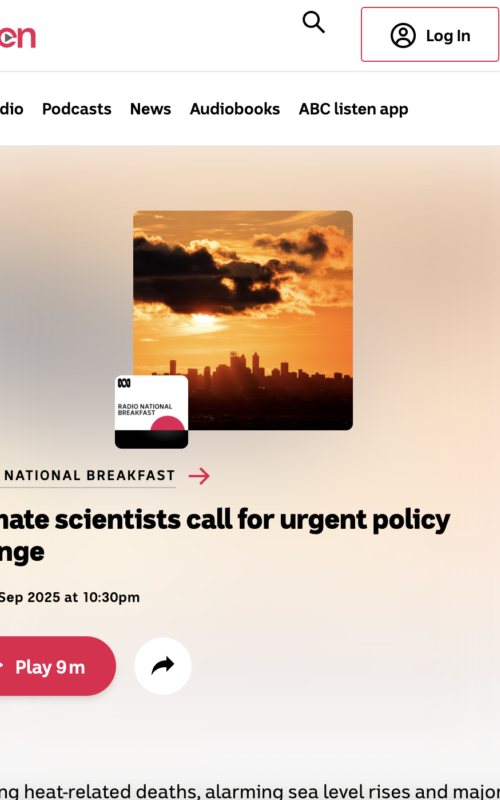
ABC Breakfast
"I think it's a massive wake-up call for the political classes in Australia to really face up to the need to do something really serious about climate change," Bill Hare told ABC.
